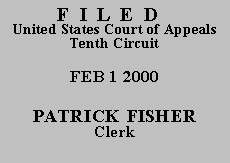

|
JOSEPH MORSE,
v.
DENNIS KLEINSASSER; PEGGY
HEIL; ANTHONY HERBERT;
JAMES MICHAUD; ARISTEDES
ZAVARA |
|
Before BRORBY, KELLY, and MURPHY, Circuit Judges.
Joseph Morse, a state prisoner proceeding pro se, appeals the district court's dismissal of his 42 U.S.C. § 1983 civil rights complaint. The district court dismissed Morse's complaint as legally frivolous pursuant to 28 U.S.C. § 1915A. In his complaint, Morse raised the following two claims: (1) the defendants had denied him due process and equal protection by repeatedly refusing to progress him through the Colorado Department of Corrections Sex Offender Treatment Program ("SOTP"); and (2) the defendant warden denied him due process when he refused to complete a certificate of character to be included in Morse's commutation packet and refused to forward the packet to the appropriate state officials.(1) In rejecting Morse's claims relating to the SOTP, the district court noted that although Morse's complaint contained a conclusory assertion that he had been treated differently from other inmates, it also asserted that he had been removed from the program for nonparticipation and disruptive behavior. Completely absent from the complaint was any assertion that other inmates considered disruptive had been allowed to advance through the SOTP. Furthermore, in light of the fact that Morse's allegations did not implicate a fundamental right(2) of suspect classification, the actions of the defendants were subject to challenge only on the basis that they were not reasonably related to some legitimate penological purpose. Even read liberally, the allegations set forth in Morse's complaint were woefully insufficient to support such an assertion. In rejecting Morse's commutation claim against the defendant warden, the district court simply noted that neither the United States Constitution, nor the Colorado commutation provisions, created the liberty interest necessary to support Morse's due process claim.(3)
This court has carefully reviewed Morse's appellate brief, the district court's order of dismissal, and the entire record on appeal. That review demonstrates that the district court correctly determined that Morse's complaint was frivolous and, furthermore, that this appeal is likewise frivolous. Accordingly, we hereby DISMISS this appeal pursuant to § 1915A. In so doing, we specifically note that the district court's dismissal of Morse's complaint as frivolous and our dismissal of this appeal on the same grounds each count as a strike for purposes of the Prison Litigation Reform Act. See 28 U.S.C. § 1915(g) ("In no event shall a prisoner bring a civil action or appeal a judgment in a civil action [in forma pauperis] if the prisoner has, on 3 or more prior occasions while incarcerated . . . brought an action or appeal in a court of the United States that was dismissed on the grounds that it was frivolous, malicious, or fails to state a claim upon which relief may be granted, unless the prisoner is under imminent danger of serious physical injury."). Accordingly, Morse now has at least two strikes. Morse is advised that if he incurs three strikes, he will not be entitled to proceed in forma pauperis in any federal lawsuits, other than habeas petitions, which do not involve "imminent danger of serious physical injury." See White v. Colorado, 157 F.3d 1226, 1232 (10th Cir. 1998), cert. denied, 119 S. Ct. 1150 (1999).
ENTERED FOR THE COURT:
Michael R. Murphy
Circuit Judge
*. This order and judgment is not binding precedent, except under the doctrines of law of the case, res judicata and collateral estoppel. The court generally disfavors the citation of orders and judgments; nevertheless, an order and judgment may be cited under the terms and conditions of 10th Cir. R. 36.3.
1.Although Morse also advanced an Eighth Amendment claim in his complaint, he has specifically declined to pursue that claim on appeal. See Appellant's Brief at 3 ("For purposes of this appeal the Petitioner-Appellant will not pursue the cruel and unusual punishment claim.").
2.Morse asserts for the first time on appeal that the defendants violated his rights under the Fifth Amendment by forcing him to answer questions about past instances of sexual assault or abuse in order to progress through the SOTP program. This court will not consider issues raised for the first time on appeal. Walker v. Mather (In re Walker), 959 F.2d 894, 896 (10th Cir.1992).
3.On appeal, Morse asserts that the district court did not adequately consider Colo. Rev. Stat. § 16-17-102 in concluding that Colorado law did not create a liberty interest in commutation in general or in specific commutation procedures. This court has, however, rejected the notion that § 16-17-102 creates a liberty interest in commutation. See Bunton v. Gunter, No. 93-1204, 1993 WL 492981, at *3 (10th Cir. Nov. 30, 1993). Absent such an overarching liberty interest, Morse has no interest in any particular state commutation procedures. See Connecticut Bd. of Pardons v. Dumschat, 452 U.S. 458, 463 (1981) ("A state-created right can, in some circumstances, beget yet other rights to procedures essential to the realization of the parent right. Plainly, however, the underlying right must have come into existence before it can trigger due process protection." (citation omitted)).